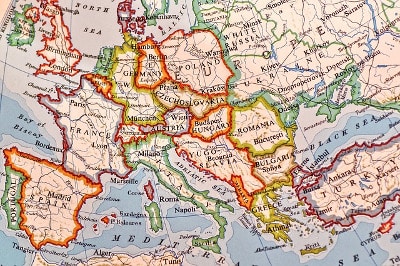It is easy to understand how the oversight can be made: being an expat on a high value salary in a foreign country with all the excitement and opportunity it brings can too easily result in a short-term and blinkered approach. Yet the reality remains that everyone faces demands on their income, and if these then become compounded by extra expenses such as school fees, nursing home fees for a parent, mortgage assistance for a child or something else, the need for the backup and liquidity of regular savings can quickly become apparent.
Now is Always the Best Time to Save
However long your stay abroad, there is never any time like the present to begin putting money into an expat regular savings plan.
Regardless of your age, the sooner you start saving, the more potential there is for growth. For example, compound savings mean that if you start saving now, not only do you have more time to earn interest, you also have the power to enjoy compound gains (the interest you earn on your interest).
Where possible, it is beneficial to put away as much as 20-30% of your salary—it might curb your spending power a little in the short-term, but over the longer-term you will have more freedom and more leverage.
And the great thing about an expat regular savings plan is that it is flexible enough to accommodate just about anyone’s financial goals: whether you are saving for a second home, a yacht, school fees or something else, you can make it work for you.
However, as with any aspect of financial planning, beginning the process of setting up your expat regular savings requires you to examine your goals, your budget and your options. This is a process best undertaken with the help of an experienced financial adviser or wealth manager.
Financial Advice and Wealth Management from Blacktower
Blacktower has more than three decades experience of helping its clients achieve their financial goals.
Ours is a holistic service—whether you want assistance with your retirement, inheritance or education fee planning or advice as to the best way to set up expat regular savings, we can help.
Contact your local office in Europe today.
This communication is for informational purposes only and is not intended to constitute, and should not be construed as, investment advice, investment recommendations or investment research. You should seek advice from a professional adviser before embarking on any financial planning activity. Whilst every effort has been made to ensure the information contained in this communication is correct, we are not responsible for any errors or omissions.

 Last year the Association of British Insurers (ABI) provoked something of a panic among British expats in Europe. Those who in some way rely on insurance products, such as annuities and life insurance, for the payment of income and expat pensions were understandably alarmed when Huw Evans of the ABI said that a no-deal Brexit could leave insurance contracts in legal limbo because of a risk that payments could not be fulfilled for contracts written pre-brexit. (
Last year the Association of British Insurers (ABI) provoked something of a panic among British expats in Europe. Those who in some way rely on insurance products, such as annuities and life insurance, for the payment of income and expat pensions were understandably alarmed when Huw Evans of the ABI said that a no-deal Brexit could leave insurance contracts in legal limbo because of a risk that payments could not be fulfilled for contracts written pre-brexit. ( The Pensions and Lifetime Savings Association has issued a strong warning against government proposals to raise the state pension age to 68 (with the possibility of being raised higher to 70). It has said that such a scenario would create significant problems – an “unacceptable detriment” – for those with low life expectancy.
The Pensions and Lifetime Savings Association has issued a strong warning against government proposals to raise the state pension age to 68 (with the possibility of being raised higher to 70). It has said that such a scenario would create significant problems – an “unacceptable detriment” – for those with low life expectancy.